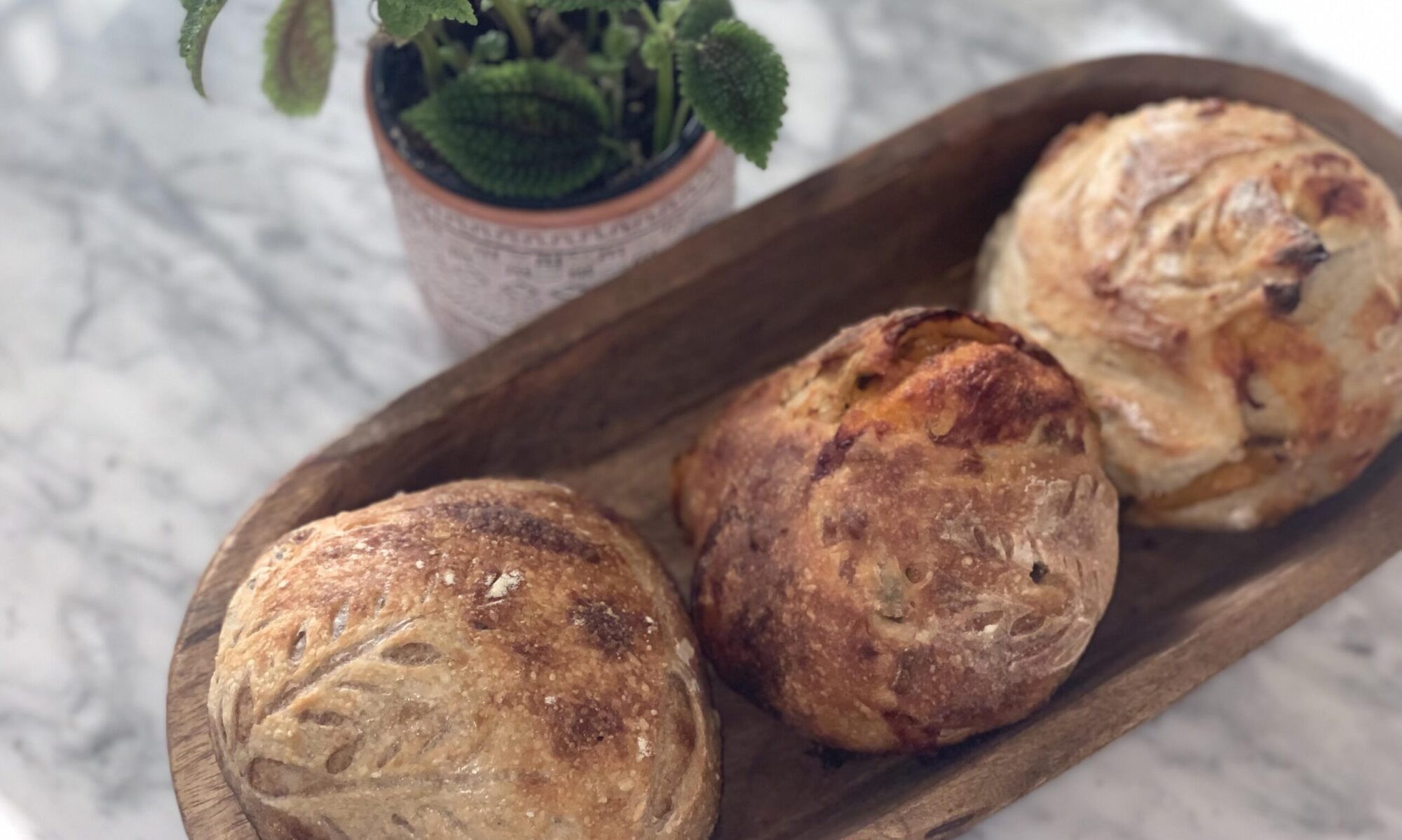ABOUT
About Me:
My name is Jennifer, I live in downtown San Clemente, CA. I never thought I would be so passionate about baking sourdough! I currently bake out of my home and recently decided it’s time to start selling them.
My sourdough journey began in 2020. With so many items becoming unavailable, I remember buying a bag of flour and then realizing I really should at least learn how to bake bread. I had some baking experience prior but my desire to be more self-sufficient as well as having more healthier options available to my household grew exponentially that year. This catapulted me into the world of fermentations which led me to sourdough. My daughter also loved sourdough and kept begging me to learn how to make it for her. I knew it was healthier option so I eventually set out to learn it so I could choose my own ingredients.
I received a starter from a friend which was touted as having originated from a 50 year old batch of San Franciscan starter. Once I got the nerve to experiment with it, I was determined to make a crunchy, fluffy, beautiful artisan loaf and the rest is history. There is something so rewarding in pulling out a freshly baked, crunchy ball of goodness right out of the oven. I have now decided it’s time for me to share that sourdough joy with other locals within the area of San Clemente.
Why Choose Organic:
By choosing organic, you can minimize the exposure to harmful pesticides, synthetic fertilizers, gross sewage sludge, genetically modified organisms (GMO’s), or ionizing radiation. We are exposed to more than enough harmful toxins in this age we live in. Why not seek to minimize that as much as we can?
Why Choose Sourdough:
Sourdough acts as a prebiotic with the fiber basically feeding the good bacteria in the intestines. Additionally, sourdough has less gluten in it due to the fermentation process. These bacteria are important for maintaining a stable, healthy digestive system. Sourdough is also lower in gluten than other forms of bread. I am looking into gluten-free sourdough options as well as other more tolerable ancient grains for those who can’t tolerate sourdough. If This is of interest to you, feel free to reach out.
Sourdough Origins:
Sourdough is basically a spontaneous fermentation process and is believed to have origins dating back to at least 3000 BC. Developed in ancient Egypt, then reached ancient Greece, Europe, and the Roman Empire.
Ancient Egypt cultivated wheat as well as other grains in the Nile River Valley. They manufactured enough bread to feed thousands daily. The ancient Greeks were introduced to leavened breads through Egypt. They import wheat from both Sicily and Egypt in trading Greeks started baking bread at night and improved the still of backing bread as well as updating equipment. Romans at a lot of bread. Freed slaves would learn the trade of bread baking and turned into professional bakers. Eventually, bakers became public officials.
During the European Barbarian migration, bread wasn’t the primary food and the art of industrialized bread-making faded out of memory. However, monasteries preserved the art until the twelfth century. The baker profession then made its reappearance in France. Bread making technology progressed further during the Middle Ages primarily in northern Europe. Europe had widespread breweries and they found they could use the barm from beer brewing as a leavening substitute to sourdough.
This led to baker’s yeast (compressed yeast) practically almost completely replacing sourdough by the 1800’s. Baker’s yeast became popularized due to how rapidly and simply it leavened the dough. However, although sourdough is much more time-consuming, the long fermentation time is what brings about it’s nutritious properties. And here we are, full circle, realizing they seemed to have had it right the first time.


